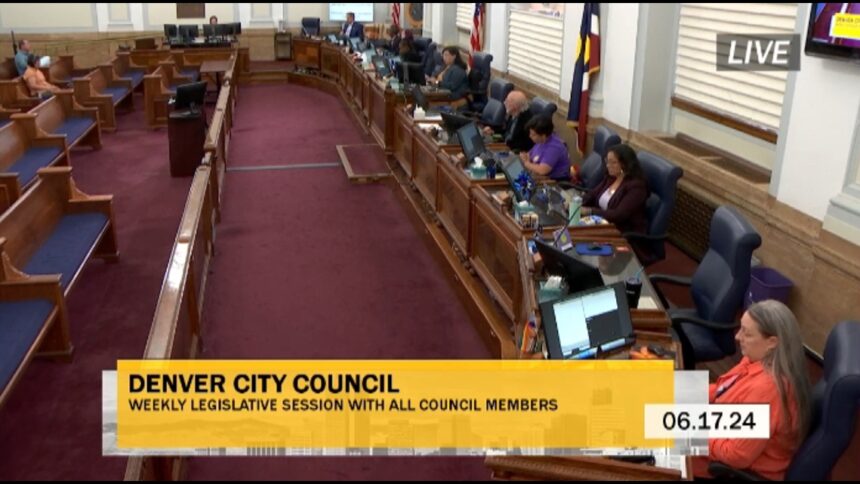Two councilmembers voted against additional funding for the project, citing a lack of transparency and how much money has already been spent.
DENVER — The Denver mayor’s office may be losing support for its massive homelessness initiatives in city council. Two councilmembers voted not to approve more funding this week for an All In Mile High program proposed by the mayor’s office, citing a lack of transparency and exorbitant spending.
It took months of asking Mayor Mike Johnston’s office how much his homelessness initiatives are costing before they finally had an answer. By the time city councilmembers found out the price tag is around $155 million over 18 months, some were already trying to put a stop to the spending.
“We have to stop approving millions and millions and millions of dollars that are not sustainable, that there is no sustainable funding source for,” Councilmember Amanda Sawyer said at a city council meeting on Monday.
“We’re signing blank checks away and we need to have some accountability on it,” Councilmember Stacie Gilmore said.
Gilmore and Sawyer voted “no” this week on a $5 million plan to move 250 people into permanent homes through a “Housing Connector” program. It’s a plan both councilmembers say is good and could help the city. Yet they voted against it because of how much money the mayor’s office has already spent on other projects they say aren’t working as well.
The vote to approve another $5 million for permanent housing did pass through city council with all eight other members voting in favor of it.
“What is so incredibly frustrating about this is that by the time this really good contract came in front of us, we had already approved so many other contracts that are not as successful,” Sawyer said.
The mayor’s office finally revealed on Tuesday its All In Mile High program will cost around $155 million over 18 months. That’s about $67 million more than originally budgeted.
They say they hope to move 2,000 people indoors by the end of this year.
Including all the one-time costs like buying hotels and pallet shelters, that brings the total price to $77,500 per person that’s been moved off the street at the end of the year.
An estimated $84.1 million of the $155 million are one-time costs, according to the mayor’s office. The majority of those costs are funded through federal money.
If you take away the one-time costs, the city’s department of housing stability estimates the yearly price tag is $57.5 million.
“If we serve 2,000 people, which is what we anticipate serving, that is about a per person cost of $28,750 per person,” said Dr. Jamie Rife, executive director of the Denver Department of Housing Stability.
The mayor’s office argues that it’s even more expensive to keep people on the streets than to move them into housing. It’s hard exactly to add up all those numbers and figure out the true cost of someone living on the streets.
“Depending on a person’s disabilities or chronicity, it can cost up to $50,000 for them to remain unhoused and unsheltered on the streets of Denver,” Rife said. “That is not all city cost, but that is still a cost to many of us in different ways.”
SUGGESTED VIDEOS: Next with Kyle Clark










